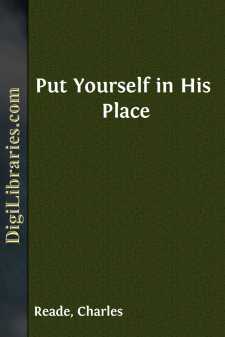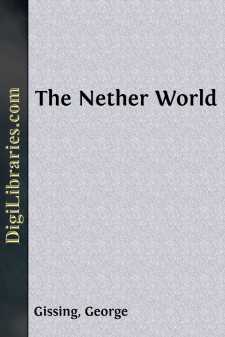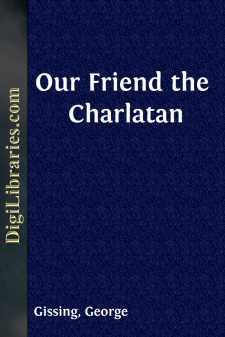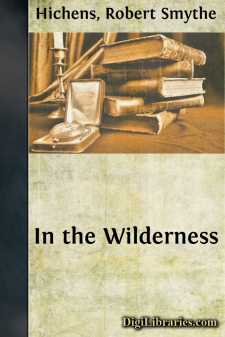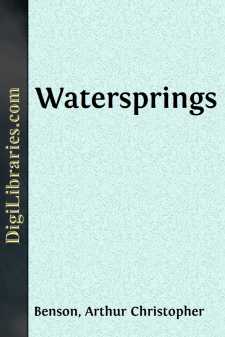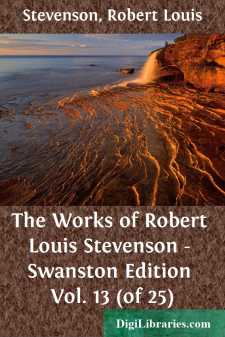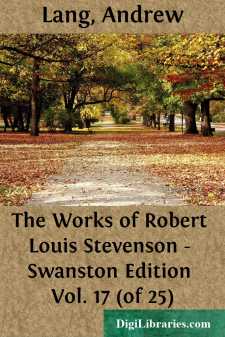Literary Collections
- American 84
- Ancient, Classical & Medieval 14
- Asian 1
- Australian & Oceanian 1
- Canadian 55
- Continental European 121
- English, Irish, Scottish, Welsh
- Essays 160
- General 24
- Letters 46
- Middle Eastern 1
English, Irish, Scottish, Welsh Books
Sort by:
by:
George Gissing
CHAPTER I It was Mumford who saw the advertisement and made the suggestion. His wife gave him a startled look. 'But—you don't mean that it's necessary? Have we been extrav—' 'No, no! Nothing of the kind. It just occurred to me that some such arrangement might be pleasant for you. You must feel lonely, now and then, during the day, and as we have plenty of room—'...
more...
by:
Charles Reade
CHAPTER I. Hillsborough and its outlying suburbs make bricks by the million, spin and weave both wool and cotton, forge in steel from the finest needle up to a ship's armor, and so add considerably to the kingdom's wealth. But industry so vast, working by steam on a limited space, has been fatal to beauty: Hillsborough, though built on one of the loveliest sites in England, is perhaps the...
more...
by:
George Gissing
CHAPTER I In the troubled twilight of a March evening ten years ago, an old man, whose equipment and bearing suggested that he was fresh from travel, walked slowly across Clerkenwell Green, and by the graveyard of St. James's Church stood for a moment looking about him. His age could not be far from seventy, but, despite the stoop of his shoulders, he gave little sign of failing under the burden...
more...
by:
George Gissing
CHAPTER I As he waited for his breakfast, never served to time, Mr. Lashmar drummed upon the window-pane, and seemed to watch a blackbird lunching with much gusto about the moist lawn of Alverholme Vicarage. But his gaze was absent and worried. The countenance of the reverend gentleman rarely wore any other expression, for he took to heart all human miseries and follies, and lived in a ceaseless mild...
more...
CHAPTER I Amedeo Dorini, the hall porter of the Hotel Cavour in Milan, stood on the pavement before the hotel one autumn afternoon in the year 1894, waiting for the omnibus, which had gone to the station, and which was now due to return, bearing—Amedeo hoped—a load of generously inclined travelers. During the years of his not unpleasant servitude Amedeo had become a student of human nature. He had...
more...
I The bright pale February sunlight lay on the little court of Beaufort College, Cambridge, on the old dull-red smoke-stained brick, the stone mullions and mouldings, the Hall oriel, the ivied buttresses and battlements, the turrets, the tiled roofs, the quaint chimneys, and the lead-topped cupola over all. Half the court was in shadow. It was incredibly picturesque, but it had somehow the look of a...
more...
by:
Leslie Stephen
When I was honoured by the invitation to deliver this course of lectures, I did not accept without some hesitation. I am not qualified to speak with authority upon such subjects as have been treated by my predecessors—the course of political events or the growth of legal institutions. My attention has been chiefly paid to the history of literature, and it might be doubtful whether that study is...
more...
IN THE MARQUESAS It was about three o’clock of a winter’s afternoon in Tai-o-hae, the French capital and port of entry of the Marquesas Islands. The Trades blew strong and squally; the surf roared loud on the shingle beach; and the fifty-ton schooner of war, that carries the flag and influence of France about the islands of the cannibal group, rolled at her moorings under Prison Hill. The clouds...
more...
THE COURTING OF T'NOWHEAD'S BELL, By J. M. Barrie For two years it had been notorious in the square that Sam'l Dickie was thinking of courting T'nowhead's Bell, and that if Little Sanders Elshioner (which is the Thrums pronunciation of Alexander Alexander) went in for her, he might prove a formidable rival. Sam'l was a weaver in the tenements, and Sanders a coal-carter,...
more...
by:
Andrew Lang
CHAPTER I THE ELEMENTS OF DISCORD: NATIVE The story I have to tell is still going on as I write; the characters are alive and active; it is a piece of contemporary history in the most exact sense. And yet, for all its actuality and the part played in it by mails and telegraphs and iron war-ships, the ideas and the manners of the native actors date back before the Roman Empire. They are Christians,...
more...



